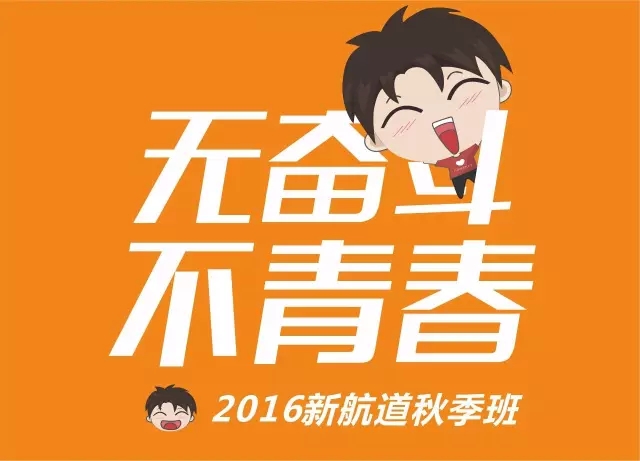托福写作丨李冰冰给China Daily用英文讲了件大事
作为联合国环境规划署亲善大使的中国演员李冰冰,日前给中国日报(CHINA DAILY)投了一篇稿件,呼吁大家制止非法野生动植物贸易。
既然谈的是全球性的话题,那么用英文当然是的选择之一。
对,准备好你的膝盖,稿子是用英!文!写!的!
本期的托福写作栏目,就让新航道小编带大家一起看看李冰冰这篇文章,你能给打几分呢?
Time for tears is past, it's time for action
Producing genuine tears on demand is one of the hardest parts of my job as an actress. Acting teachers will tell you that in order to cry on screen you need to summon up something personal — a fear, an inner secret, a sad experience — that taps into your deepest emotions.
This may sound strange, but the inner secret I use when I need to cry during a movie scene is the image of an elephant. It’s an image that haunts me, an image that will remain in my heart and mind for as long as I live.
Two years ago I visited Samburu National Reserve, a wildlife park in Kenya. There, on a guided walk through the bush, I saw my first dead elephant. Poachers had hunted down this magnificent animal before piercing her tough hide with poisoned spears. As if she already knew her fate, the elephant had walked through the bush, the toxins coursing through her veins, until she found a quiet place to lie down. She chose to die in the cool shade of an acacia tree.
And that’s where her body was when I saw her, lying in the dusty red soil, her face hacked off with machetes so that her killers could wrench the tusks from her skull. Around her dead body were the small footprints of a baby elephant; her child now left to fend for itself without the protection of its mother.
That moment, the sight of the dead mother and her mutilated body lying under the shade of the tree, changed something inside me. It made me sick in the pit of my stomach. I remember crying for her as I thought about the cruelty and senselessness that had led to her death. It made me angry, too: she died so that someone living thousands of miles away could buy a bracelet made from ivory, or some other trinket they could show off to their friends and neighbors, oblivious to the blood, sorrow and brutality that made these trivial objects possible.
But her death also fired me up. I stepped from the shade of that acacia tree knowing that to prevent the death of more elephants like her I would have to double my efforts to stop the illegal trade in ivory, which is fuelling so much misery in Africa.
The demand for ivory, especially in Asia, and the greed of those who profit from this gruesome trade means that poachers kill one elephant every 15 minutes. In the past decade, more than one-fourth of the world’s elephants have been slaughtered for their ivory.
And it’s not just the elephants that suffer. Millions of tourists every year flock to see these giant animals, bringing vital jobs and income to some of the poorest communities on Earth. Kill an elephant and you rob people of their livelihoods. This senseless killing must stop, and it must stop now.
That’s why I’m supporting a new United Nations campaign against the illegal trade in wildlife, which is pushing many species — not just elephants — to the brink of extinction in every corner of the world. Under the banner "Wild for Life", this campaign serves to raise awareness about the illegal trade in wildlife and embolden everyone to take action against these crimes, which destroy forests, fuel corruption, breed insecurity and divert money away from governments struggling to improve healthcare and education for their people.
The illegal trade in wildlife thrives on ignorance and indifference. That is why knowledge serves as such a powerful weapon against these crimes. Armed with knowledge, we can shop carefully to avoid buying illegally sourced products like ivory; we can report crimes using mobile devices and national hotlines; and we can support conservation initiatives that press authorities to combat wildlife crime.
If we take away the demand for ivory then the killing of elephants will end. That is why it’s vital that we don’t buy anything made from ivory no matter how intricately it is carved.
The terrible truth is that an elephant’s blood has been spilt and entire families have been torn apart. This is the awful truth that we need to megaphone across the world. It’s a truth that you can help spread.
It is not enough to weep for the countless animals that have been killed. The time for tears is over. The time for action is upon us.

是时候制止非法野生动植物贸易了
作为一名演员,我工作的一大挑战就是哭戏。学表演的时候老师曾说,若想感动观众,首先要感动自己。我要去挖掘内心深处无法释怀的经历和过往,回忆那些让我拳拳在念,切切在心的人或事。酝酿情绪的过程中,那些或悲伤,或恐惧的记忆如同一行一行蚂蚁,在我的脑海中不断穿梭,闪现。
说来奇怪,每每这一刻,我总会想起那头倒在金合欢树荫下,被砍去面部的大象。她总会触动我内心深处最伤感的情绪,让我不经意间就泪流满面。
两年前,我有幸访问了肯尼亚桑布鲁国家自然保护区。在向导的指引下,我穿过繁密的丛林,平生次看到一头死去的大象。她卧倒在金合欢树荫下,已经面目全非。向导说她死前曾遭到偷猎者疯狂的追捕,尽管为自己寻得一片隐匿的丛林,却仍被毒箭所伤。毒素很快流遍她的全身,她最终在金合欢树影下慢慢睡去。
她的遗骸深陷在泥泞的红壤中,象牙已被偷猎者生生掰下,尸首零落。她的旁边有小象出没的足迹。我不禁担忧,妈妈不在了,它能照顾好自己么。
看着她被残忍肢解的躯体,我心痛到无法呼吸,胃中翻江倒海。或许在数千英里之外,一些人正得意地向自己的朋友和邻居炫耀着买来的象牙筷子,手镯或其他装饰品,殊不知这背后隐藏的血与泪。
从树影中走出来,我一言不发,内心的悲伤逆流成河。非洲象牙贸易血雨腥风,愈演愈烈,我自知唯有加倍努力,才可能防止未来更多的大象像她一样悲惨死去。谁都无法承受更多的离别和死亡。
全球,尤其是亚洲地区对于象牙有很大的需求。贪婪的偷猎者垂涎于象牙贸易背后的丰厚利润,每15分钟就会屠杀一头大象。过去的十年中,世界上超过四分之一的大象被杀害。
遭殃的还不只大象。每年数百万喜爱大象的游客到访非洲,为当地最贫困社区的人们提供重要的收入来源。而随着大象数量的减少,当地人正逐渐失去立足之本。这种毫无意义的杀戮必须立刻停止。
因此我支持联合国发动的这场运动。非法贸易破坏森林、助长腐败、滋生不安全因素、还严重剥削政府投入到医疗和教育的拨款,使世界各个角落的物种——不仅仅是大象——濒临灭绝。为生命呐喊运动旨在提高人们对非法野生动植物贸易的认识,鼓励每个人都采取行动制止相关犯罪。
非法贸易的根本在于无知和冷漠,而知识是遏制相关犯罪的一个强有力的武器。只有人们用知识武装自己,我们才能在购物的时候避免购买包括象牙在内的非法产品;通过移动电话和国家热线,报告犯罪分子行踪;支持当地保护计划,推动政府加大力度打击野生动植物犯罪。
当象牙制品没有了市场,大规模杀伤行为才会终结。
每一个象牙制品背后,都是一条鲜活的生命和因此支离破碎的家庭。如果屠害大象仅仅是为了满足某些人吃穿的需求,这代价未免太沉重。我们需要让世界各地都清楚地意识到问题的严重性,将事实传播到每一个角落。
此时此刻,眼泪是没有用的。道虽远,不行不至;事虽难,不为不成,让我们尽快采取行动。
更多长沙托福培训相关资讯,请关注长沙新航道托福频道。新航道-用心用情用力做教育!!!

托福写作 课程中心
查看更多 >托福快讯
- 这个问题是很多同学想知道... 2018-12-12
- 托福考试是同学们去国外留... 2018-12-12
- 语言成绩最终还是为申请学... 2018-12-10
- 相信每个学生都有一个... 2018-37-18
- 倘若美国常春藤的8所... 2017-22-27



